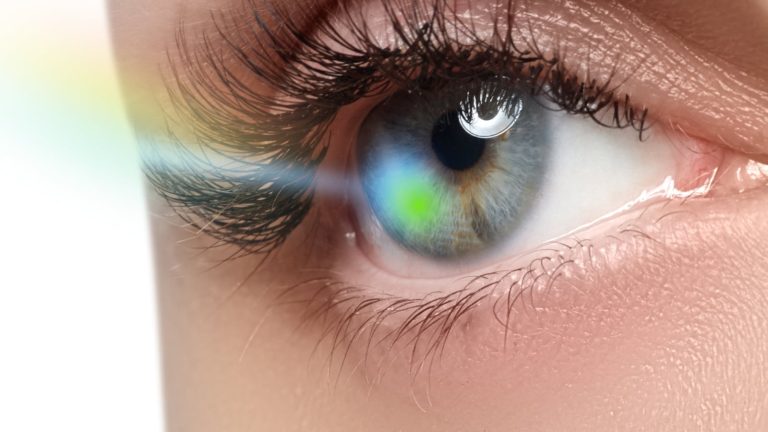Losing one’s sight completely is a painful and life-changing experience. It is both emotionally devastating and physically limiting. Many people cannot even bear to imagine what it would be like to go blind.
In Nigeria, there are very few facilities and services that help blind or visually impaired people live more comfortably. Because of this, it is very important for everyone to take good care of their eyes and protect their vision.
The eye is often described as the “window of the body” because it lets in light. The famous artist and scientist, Leonardo da Vinci, once called the eye the “window of the soul,” because it helps us perceive and understand the world around us.
Leonardo studied the human eye in detail and drew its structure. His work showed how important the eye is in helping the body see light and the environment.
One of the best ways to keep the eyes healthy is through good nutrition. Studies show that certain nutrients and antioxidants can lower the risk of eye diseases like cataracts and macular degeneration. For example, vitamin A helps prevent blindness, while vitamin C may protect against glaucoma.
Omega-3 fatty acids also support eye health. They can ease dry eyes and help prevent damage to the macula, which is the part of the eye responsible for sharp central vision.
Experts recommend several vitamins, minerals, and nutrients for good eyesight. These include beta-carotene, bioflavonoids, lutein, zeaxanthin, selenium, and vitamins A, C, D, and E, along with zinc. Getting enough of these nutrients helps protect the eyes from serious conditions.
Eating the right foods daily can supply the body with these nutrients. The U.S. Institute of Medicine sets the Recommended Dietary Allowance (RDA) for most nutrients. While this is a good guide, some eye doctors may recommend higher doses for people at risk of eye problems.
Beta-carotene helps protect the eyes and may slow down macular degeneration when combined with zinc and vitamins C and E. It is found in carrots, sweet potatoes, spinach, kale, and butternut squash.
Bioflavonoids act as strong antioxidants and protect against cataracts and macular degeneration. They are found in foods rich in vitamin C like oranges, lemons, limes, peaches, broccoli, tea, red wine, and berries.
Lutein and zeaxanthin are carotenoids found in green leafy vegetables and colorful fruits. They protect the eyes from harmful blue light and play a role in preventing cataracts and macular degeneration. They are also concentrated in the macula of the human eye.
Selenium, when combined with vitamins C and E, may reduce the risk of advanced macular degeneration. It is found in seafood, Brazil nuts, brown rice, and enriched noodles.
Vitamin A prevents night blindness and dry eyes. Sources include liver, eggs, butter, and milk.
Vitamin C lowers the risk of cataracts and macular degeneration. It is found in peppers, strawberries, kale, oranges, and broccoli.
Vitamin D helps reduce the risk of macular degeneration. It is present in fish like salmon and sardines, fortified milk, and orange juice. Sunlight is also a natural source, as the skin produces vitamin D when exposed to the sun.
Vitamin E works with other vitamins to protect the eyes from damage. It is found in almonds, sunflower seeds, and hazelnuts.
Zinc supports vitamin A in preventing night blindness and may also reduce the risk of macular degeneration. It is found in oysters, beef, and turkey.
Overall, the best way to protect your eyes is to eat a healthy diet rich in colorful fruits, vegetables, and fish. Before taking any vitamin supplements, it is wise to consult an eye doctor, as too much of certain nutrients can be harmful, especially if combined with other medications.


